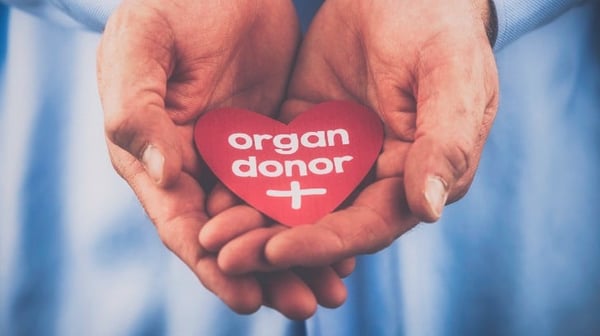A guide to organ donation
It’s always rewarding to give something back, and organ donation is one way you can make a big difference to someone’s life. But how does organ donation work and who can actually donate organs? Many people have unanswered questions on this subject, so we’ve put together a guide to organ donation which explains all.

You might also be interested in...
Why organ donation matters
According to the NHS, almost 10,000 people in the UK are in need of an organ transplant, so the importance of organ donating can’t be understated. Some of the conditions and medical problems that may require an organ donation include:
- Kidney disease
- Heart conditions
- Cystic fibrosis
- Diabetes
- Physical injuries
For many people, the longer they wait for a transplant, the greater the risk to their life. Tragically, in 2021 there were 429 patients who died while on the transplant list, so donating organs can make the world of difference.
Types of organ donation
Some people are able to donate certain organs while they’re alive, but in most cases, organ donations can be made after death.
What organs can you donate while alive?
- Kidneys. This is the most common type of organs donated by living people. You can either make a ‘directed donation’, where you donate organs to a close person (such as a friend or family member) or an ‘altruistic’ donation where the kidney is donated to an anonymous person.
- Liver. Since 1995, it’s been possible to make partial liver donations in the UK. This can help patients with liver disease and primary liver cancer, as well as some children with metabolic diseases. According to the NHS, at the end of each year there are around 600 people still waiting for a liver transplant.
- Stem cells. Young donors (aged between 16 and 30) are particularly sought after for stem cell transplants, which can help people with blood cancer and blood disorders.
Aside from organ donations, it’s possible to make some tissue donations while alive, such as donating bone (often when having an operation like a hip replacement), or donating placenta following a birth, which can be used as a graft, or dressing for surgeries such as eye reconstruction.
Organ donations after death
Just 1% of people die in a way that allows for organ donation after death. Medical specialists will make an assessment at the time of death as to whether any of the deceased’s organs are suitable, as it’s only the living tissue that can be successfully transplanted.
What organs can be donated once you’ve passed away? The organs you can donate after death can include:
- Heart
- Lungs
- Liver
- Small bowel
- Kidneys
- Pancreas
You can also choose to donate tissue after you’ve died, including skin, bones, corneas and tendons, which can often be used in reconstructive surgery. Some people also donate their brains after death, which can help doctors and researchers gain a better understanding of dementias and other brain conditions.
How does organ donation work?
Since 2020, the law in England has changed around organ donations. If you pass away and you’re over the age of 18, you will automatically be considered an organ donor unless you specifically ‘opt out’ in advance. There are some excluded groups who aren’t automatically included, such as visitors to the country, those who’ve lived in England for less than 12 months, and people who lack the mental capacity to make an informed decision. There are many myths about organ donation and this guide can help you decide to become an organ donor or not.
Waiting lists for organ transplants
There is huge demand for organ donations. The long organ donation waiting list is partly explained by the shortage of organ donors, but also a shortage of transplantable organs relative to the volume of people who need a transplant.
How to become an organ donor
As we’ve covered, you will now automatically be considered an organ donor unless you ‘opt out’. Whether you’re looking to donate a kidney, part of your liver or another organ, you can record your preferences about organ donations on the NHS Organ Donor Register.
Who can become an organ donor?
There is no age limit for becoming an organ donor. Children can register themselves as organ donors with their parents’ permission (if they’re under 18 in England, Wales and Northern Ireland, or 12 in Scotland). Having a medical condition doesn’t preclude you from organ donating, but any decision about the suitability of your organs will be made by medical experts.
Often, the best match for organ transplants comes from people from the same ethnic background. There is a particular demand for new living donors from Black, Asian and Minority Ethnic (BAME) communities; for example, according to the NHS, a third of people waiting for a kidney transplant are from BAME backgrounds.
How to opt out of organ donation
Deciding whether or not to donate your organs is ultimately a personal decision. Some people cite their personal or religious beliefs as a reason not to donate organs; if you have any concerns, the NHS publishes useful information on how different religions view organ donation.
If you wish to opt-out of organ donation, you can register your decision on the NHS Organ Donor Register, where you can also specify your opt-in organ donation preferences.
Other related articles

How to speak to your family about organ donation

Myths about organ donation
